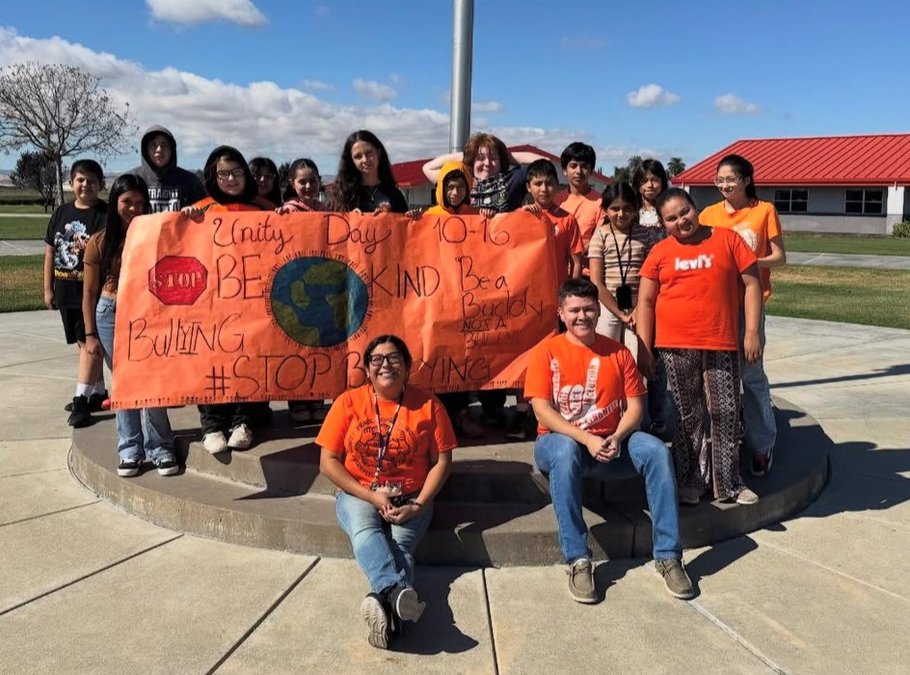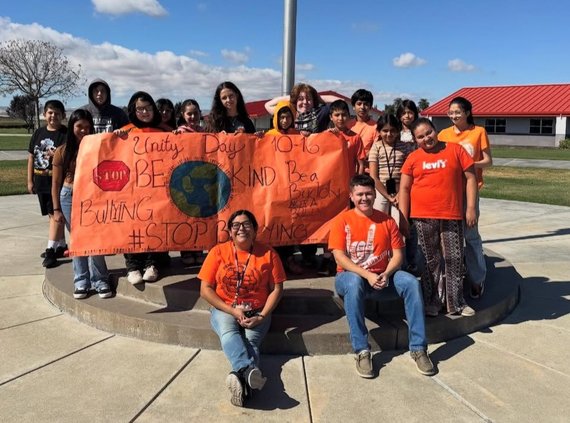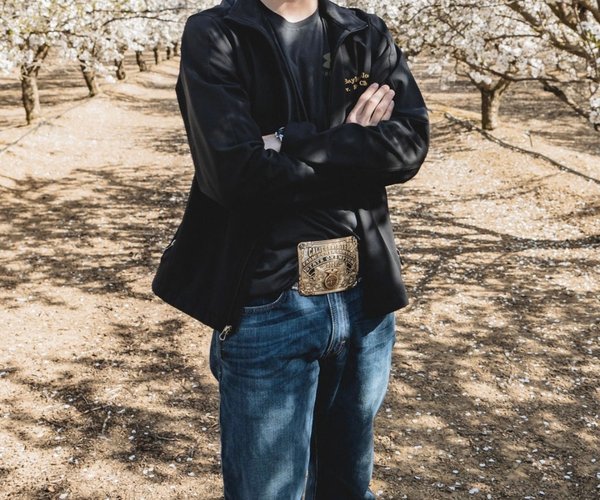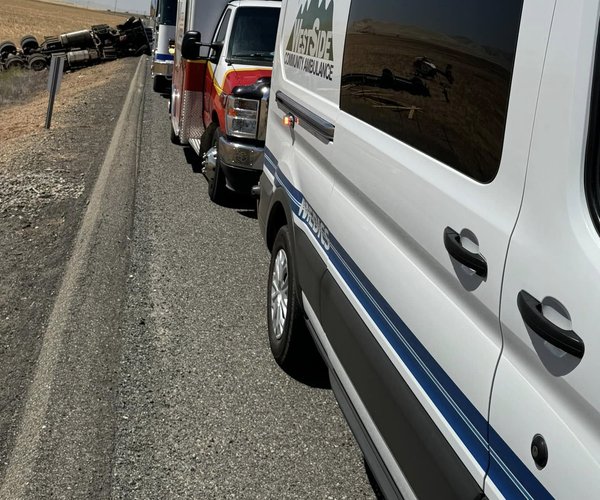Last week, schools across the nation—and across the Westside—wrapped up Unity Week, an annual campaign that turns classrooms orange in a show of solidarity against bullying. While the week featured themed dress-up days, assemblies, and school-wide kindness activities, for many parents and community members, it became something more serious: an invitation to talk about what bullying really does, how it changes lives, and what role adults must play to stop it.
“You Don’t Forget It — Ever.”
For Maria Lopez of Gustine, Unity Week reopened memories she thought she had left behind.
“I was bullied every day in middle school for the clothes I wore and for speaking Spanish,” Lopez said quietly. “People think kids forget, but you don’t. You just learn to hide it better. I still remember sitting alone at lunch and pretending it didn’t bother me. That’s a memory that never fades.”
Now a mother of two, Lopez said the experience has shaped the way she parents.
“I tell my son and daughter every morning: be kind, even when nobody’s looking. You don’t know what someone else is carrying.”
Her reflection mirrors the sentiment of dozens of adults interviewed during and after Unity Week—each of them carrying a story that never really went away.
“Back Then You Just Took It.”
Johnathan Flants of Patterson said that when he was growing up, there wasn’t much language for what he and others endured.
“You were told to toughen up,” Flants said. “If you complained, you were called sensitive. But when you look back, it wasn’t teasing—it was harassment. It shapes your confidence. Even now, as an adult, I catch myself wondering if I’m good enough, and that traces back to those years.”
Flants believes the progress schools have made—dedicated awareness weeks, anti-bullying pledges, and counseling support—is meaningful, but he warns that the conversation often stops once the decorations come down.
“We can’t treat Unity Week like a holiday. It has to be a habit. If we only talk about kindness for five days, we’re not solving the problem.”
The New Front Line: Cyberbullying
For parents like Cynthia Perez of Newman, the issue feels even more urgent in the age of smartphones.
“When we were kids, the bullying stopped when you got home,” she said. “Now it follows you into your bedroom through a screen. It’s screenshots, group chats, fake accounts. One message can be shared a hundred times before a parent even finds out.”
Perez said her teenage daughter was the target of an online rumor last year that spread across multiple schools.
“It destroyed her confidence. She stopped wanting to go to school, stopped eating. The damage was instant.”
She added that the hardest part was realizing how few adults knew what was happening. “Teachers can’t monitor every phone, and parents are working. That’s why we have to be vigilant and involved. Bullying now happens in silence, behind locked screens.”
Recognizing the Signs
Several parents said they initially missed the warning signs that their children were struggling.
Tom Garcia of Santa Nella shared how his once-outgoing son began making excuses to skip soccer practice.
“He’d say his stomach hurt, that he was tired, that he just didn’t feel like it,” Garcia recalled. “Then we found out he was being mocked by teammates in a group chat. By the time we knew, he had already started believing the things they were saying about him.”
Garcia said that moment changed his entire approach to parenting.
“Now we talk every night. I ask about lunch, about who he sat with, about what made him smile that day. Kids need to know home is the place they can unload the weight they carry.”
Experts say those small check-ins make a big difference. According to the Centers for Disease Control and Prevention, students who report feeling connected to family and school are 50 percent less likely to experience persistent feelings of sadness or hopelessness.
“We Can’t Say ‘Not My Kid.’”
Every parent interviewed agreed on one uncomfortable truth: sometimes, their own child may be the one causing harm.
“It’s easy to think bullying only happens to other people’s kids,” Perez said. “But sometimes it’s ours. And when it is, we have to face it, not deny it.”
Lopez agreed, adding that accountability should begin at home.
“When a kid bullies, there has to be a consequence and a conversation,” she said. “Taking the phone away isn’t enough. They need to understand the pain they caused and how to fix it.”
Garcia added that adults often underestimate how much children imitate them.
“If they hear us gossip, if they watch us argue online, that becomes their script,” he said. “Bullying doesn’t come from nowhere—it’s learned behavior.”
The Cost of Silence
Beyond the emotional scars, parents highlighted the serious consequences of unchecked bullying. Some referenced cases in nearby communities where harassment escalated to self-harm and even suicide.
“It breaks your heart,” Flants said. “No child should ever believe that the only way out is to disappear. That’s why parents can’t wait for someone else to notice. If something feels off—grades dropping, appetite changing, new friends, old friends gone—ask. Just ask.”
Several families urged the creation of clearer reporting systems within schools and more open dialogue between administrators and parents. “There should be a follow-up, not just a form,” Perez said. “We need to know that when a child speaks up, something actually happens.”
Keeping Unity Alive Year-Round
During Unity Week, students across Gustine and Newman wore orange, signed pledges, and participated in lessons on kindness. But for many adults, the campaign is a reminder that the work doesn’t end when the posters come down.
“Kindness isn’t a week—it’s a responsibility,” Lopez said. “Our kids are watching how we treat servers, neighbors, strangers. Every time we show respect, we’re teaching.”
Community members also suggested regular parent workshops and digital-safety nights to equip families with practical tools. “It’s not about blaming schools,” Garcia said. “It’s about partnership. Schools, parents, community—we all share the job of keeping kids safe.”
A Community Reflection
As the orange shirts are packed away, the message of Unity Week still lingers on Main Street and in living rooms across the Westside: bullying is not a childhood phase—it’s a community responsibility.
“If we want kids to stand together,” Garcia said, “we have to show them what standing together looks like.”
Flants echoed that thought.
“When we scroll through social media and see adults insulting each other over city politics or sports teams, we’re teaching our children that cruelty is normal. We need to raise the standard.”
For Lopez, the lesson is personal and permanent.
“I tell my kids, unity starts with how you treat the person right in front of you. That’s how we change the culture—one conversation, one act of kindness, one parent at a time.”
If you or someone you know is experiencing bullying, harassment, or emotional distress, help is available.
Call or text 988 for the Suicide & Crisis Lifeline, or contact your local school counselor for confidential support.





